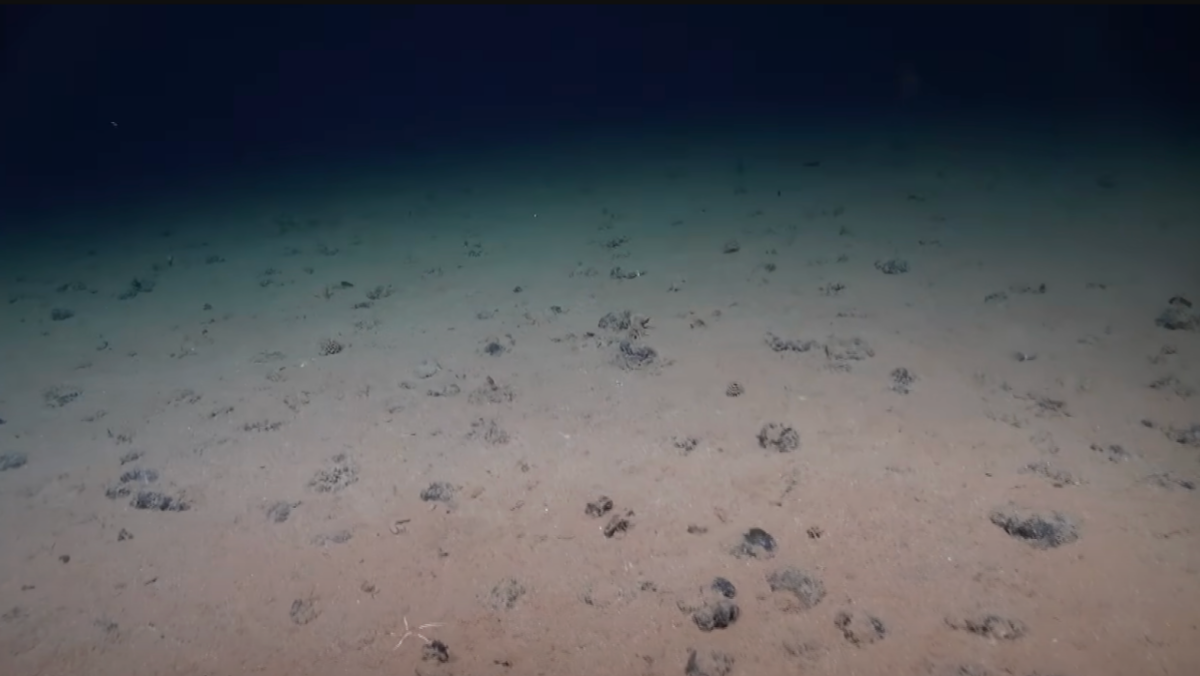Groundbreaking study discovers ‘dark oxygen’ 13,000 feet below sea surface

Screencap from SAMSmarinescience/YouTube
For so many years, scientists have been pursuing to unearth the enigma of dark matter but the findings of this new study discovering ‘dark oxygen’ on the ocean’s floor is a significant step to understand the bigger picture.
In an astounding breakthrough published in Nature Geoscience, scientists unearthed a mystery that could reshape concepts about the origins of life on Earth and also raise concerns about deep-sea mining.
Led by Professor Andrew Sweetman from the Scottish Association for Marine Science (SAMS), a team of researchers found that oxygen is produced by metallic nodules in utter darkness at an estimated depth of 13,100 feet (4,000 meters) beneath the sea surface.
Defying a longstanding belief that only organisms like algae and plants can produce oxygen, this new discovery rattles our understanding of oxygen production.
These polymetallic nodules, at 20,000 feet below the surface of the sea, may have helped start life on Earth — and be keeping it going today. https://t.co/qQnrCByJei pic.twitter.com/SH7kafkWKs
— Popular Science (@PopSci) July 23, 2024
You may also like: Earth’s inner core has stopped spinning
What is dark oxygen?
Dark oxygen is generated without sunlight, unlike on the Earth’s grounds where photosynthesis takes place. It is produced when nodules made of rare metals on the deep, dark seabed react with salt water.
This research explored the Clarion-Clippertone Zone (CCZ) in the Pacific Ocean — a water area spanning 1.7 million square miles. Here, the researchers discovered polymetallic nodules — coal-like rocks made of iron and manganese — actually produce oxygen even without sunlight.
“For aerobic life to begin on the planet, there had to be oxygen, and our understanding has been that Earth’s oxygen supply began with photosynthetic organisms,” Professor Sweetman explained.
Additionally, the team used Landers — mechanical platforms with capacity to free-fall to the ocean floor — to measure how oxygen levels varied with depth.
To their surprise, oxygen levels are higher at the sea floor. Sweetman, initially suspecting faulty equipment had repeated and recalibrated the experiments over the years but consistently ended with the same results.

Furthermore, their explorations revealed that manganese nodules were the source of the oxygen production. When they brought these to the ship for testing, it proved to contain an electric charge equivalent to an AA battery.
Dark oxygen discovery implications
These findings could substantially alter the science and origin of life.
“This discovery has shown that maybe there was another source of oxygen a long time ago, and aerobic life could have persisted before the rise of photosynthesis — and if it’s happening on our planet, could it be happening on other planets too?” Sweetman noted in a SAMS video.
While these results still need independent verification, the ramifications are profound. Director of SAMS Nick Owens, underscored, “The fact that we’ve got another source of oxygen on the planet other than photosynthesis has consequences and implications that are utterly profound.”
Opening up new avenues for more studies and explorations, this dark oxygen discovery also emphasizes the need for careful consideration of deep-sea mining practices.

